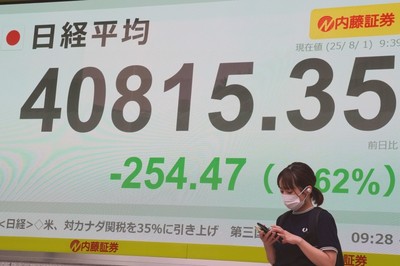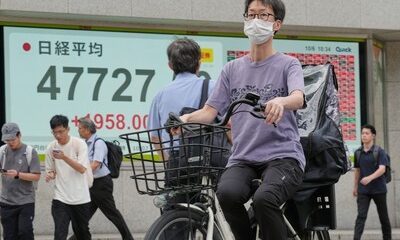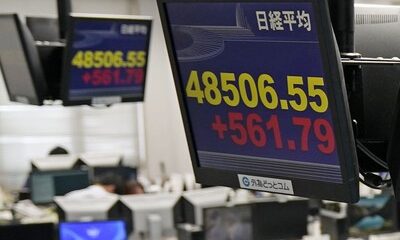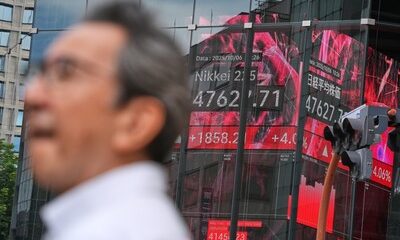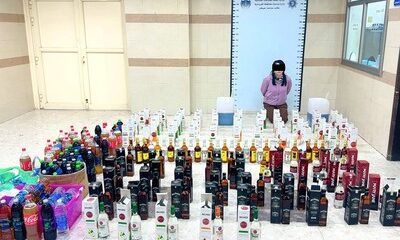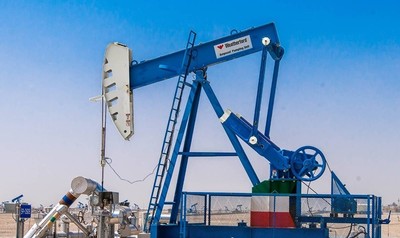KUWAIT CITY, Oct 12: Gold prices surged to a historic high, closing last week at $4,017 per ounce, marking an eighth consecutive week of gains, driven by the ongoing US government shutdown and renewed trade tensions between Washington and Beijing, according to a report from Kuwait’s Dar Al-Sabayek Company.
Gold futures for December delivery climbed 0.7 percent, or approximately $29, contributing to a weekly increase of 2.5 percent. The report cited fresh trade war fears following US President Donald Trump’s threat to impose additional tariffs on China, accusing Beijing of restricting exports of rare earth elements. This escalation intensified concerns over a slowdown in global trade amid the US shutdown, now entering its tenth day, boosting investor demand for safe-haven assets like gold.
Signs of a slowing US economy are emerging, with consumer confidence stabilizing according to the University of Michigan, while investors await the Consumer Price Index report due on October 24. The data is expected to influence the Federal Reserve’s decision on a possible 25 basis point interest rate cut at the month’s end.
Supporting the rally, US 10-year Treasury bond yields fell to 4 percent, while rising geopolitical tensions in France, Japan, and the Middle East have further increased demand for gold as a risk hedge.
Gold-backed exchange-traded funds saw record inflows of around 228 tons in Q3, valued at nearly $26 billion, reflecting strong investor confidence. The World Gold Council noted a 52 percent increase in gold investments since the start of 2025, while silver prices jumped over 70 percent, surpassing $50 per ounce.
Goldman Sachs has raised its 2026 gold price forecast from $4,300 to $4,900 per ounce, citing aggressive central bank buying and weak confidence in the US dollar. Despite potential short-term technical corrections, the report stated that inflation, high government debt, and declining faith in global monetary policies will keep gold attractive for hedging.
In Kuwait’s local market, 24-karat gold reached about KWD 39.94 ($121) per gram, while 22-karat gold was priced at approximately KWD 36.6 ($111) per gram. Silver recorded around KWD 560 ($1,836) per kilogram.
The troy ounce, the standard unit for precious metals, equals 31.103 grams.

 Politics22 hours ago
Politics22 hours ago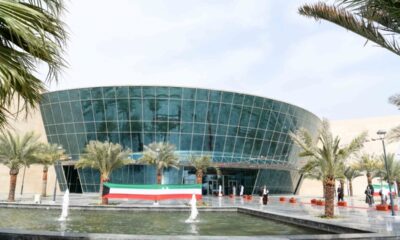
 Latest News20 hours ago
Latest News20 hours ago
 Politics19 hours ago
Politics19 hours ago
 Business22 hours ago
Business22 hours ago
 Politics21 hours ago
Politics21 hours ago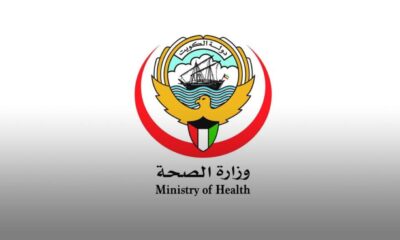
 Latest News19 hours ago
Latest News19 hours ago
 Latest News7 hours ago
Latest News7 hours ago
 Latest News9 hours ago
Latest News9 hours ago
